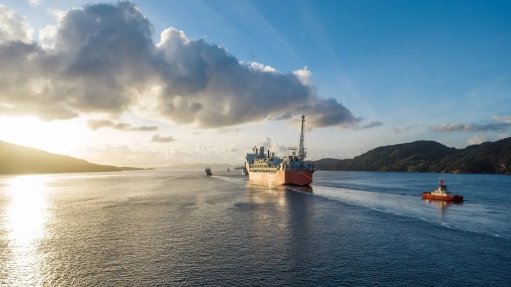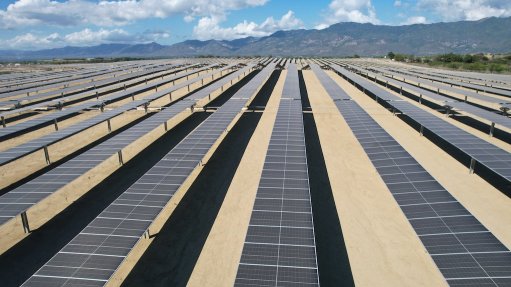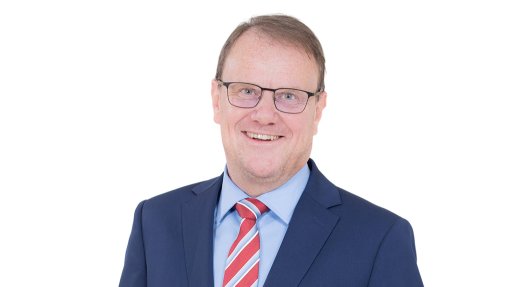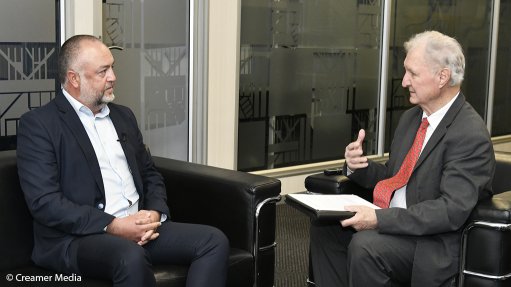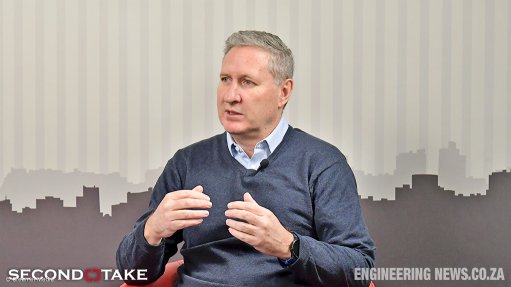AfDB pledges to quadruple financing for climate adaptation
Development funding institution African Development Bank (AfDB) recently pledged to quadruple its financing for climate adaptation to reach $25-billion by 2025 through the promotion of climate-smart investments, and encouraging private-sector funding, mainly for water treatment, recycling and other components within the water value chain.
This pledge occurred at the twenty eighth Conference of Parties to the United Nations Framework Convention on Climate Change (COP28) last month, which numerous multilateral development banks attended, and also committed to scale resource mobilisation to close the financing gap for the nature and water sectors.
At a high-level panel moderated by former UK Climate and Environment Minister Lord Zac Goldsmith, the banks shared views on what could be done differently to ensure that the world delivers on water, nature and climate agendas.
Speakers of this panel included representatives from the Inter-American Development Bank (IDB), the Asian Development Bank (ADB) and the AfDB, with AfDB Agriculture, Human and Social Development Group VP Dr Beth Dunford urging urgent action to achieve Sustainable Development Goal 6, namely "clean water and sanitation for all".
She noted that, water resources globally are diminishing while the associated impacts are “intensifying” as a result of increasing temperatures. By 2030, 250-million people will struggle with water scarcity, and by 2050, addressing or responding to climate impacts could cost African governments $50-billion a year.
She explained that since 2010, the AfDB has invested an estimated $7.4-billion in water supply and sanitation services delivery, benefiting 90-million people in Africa.
It will also take strategic debt relief programmes, such as the debt-for-nature swaps, into consideration in return for a commitment from regional member countries to invest in climate- resilient infrastructure.
“Even a drop in the ocean can make a wave of change. The AfDB Group joins fellow multilateral development banks in sharing a crystal-clear vision to ensure the availability and sustainable management of water systems for all,” Dunford said.
IDB president Ilan Goldfajn shared his institution’s CLIMA pilot programme, a financial tool that provides grants, 5% of the IDB loan principal, to incentivise borrowers to achieve nature and climate objectives.
He noted that CLIMA assists countries with access to green and thematic debt markets to mobilise capital for climate and nature investments at scale. Borrowers must meet three key performance indicators – setting ambitious environmental targets; identification of the proper policies and expenditures to meet these targets; and the measuring and reporting on their progress on time – to be eligible.
ADB president Masatsugu Asakawa, meanwhile, reinforced the need for the development community to lead in the mobilisation of partnerships that could generate new and additional financing.
He referenced the launch of the joint Common Principles for Climate Change Adaptation Finance Tracking by Multilateral Development Banks and the International Development Finance Club to improve the reporting of adaptation finance.
Asakawa also highlighted the Asia and the Pacific Water Resilience Initiative, launched by the ADB at the 2022 COP27, for the mobilisation of at least $200-million by 2025 for water and sanitation resilience and security in Asia and the Pacific.
Potsdam Institute Climate Impact Research director and the co-chairperson of the Global Commission on the Economics of Water Dr Johan Rockstrom delivered a keynote on ‘Rethinking the Financial Architecture for Water and Nature’.
He stated that nature and climate must be jointly considered in efforts to create solutions.
“The overexploitation of natural resources at a global scale has put the world at risk of destabilising the entire planet, and we are in a state of planetary emergency,” explained Rockstrom.
He also called for the management of water and consideration of water, nature and climate as a whole when looking at the mechanism for finance.
He elaborated that there is a “need to manage water as an entity, valued as a capital that [everyone] depends on” because it determines the sustainability of the biosphere, as well as being a provider of livelihoods, resilience and a part of the mitigation story.
Rockstrom called for collaboration in the mobilisation of finance and advancing a conceptual framework and restructuring of the overall financial architecture for climate, water and nature, noting that the provisioning and resilience of all natural capital assets are fundamental supports to human wellbeing and economies.
The meeting affirmed that there is no sustainable future without urgent, systematic and collective attention to the inextricable links between climate change, water crises and biodiversity loss. Further, a consensus emerged with attendees noting that the safeguarding of water resources and biodiversity should be prioritised as it is crucial in climate strategies.
Comments
Press Office
Announcements
What's On
Subscribe to improve your user experience...
Option 1 (equivalent of R125 a month):
Receive a weekly copy of Creamer Media's Engineering News & Mining Weekly magazine
(print copy for those in South Africa and e-magazine for those outside of South Africa)
Receive daily email newsletters
Access to full search results
Access archive of magazine back copies
Access to Projects in Progress
Access to ONE Research Report of your choice in PDF format
Option 2 (equivalent of R375 a month):
All benefits from Option 1
PLUS
Access to Creamer Media's Research Channel Africa for ALL Research Reports, in PDF format, on various industrial and mining sectors
including Electricity; Water; Energy Transition; Hydrogen; Roads, Rail and Ports; Coal; Gold; Platinum; Battery Metals; etc.
Already a subscriber?
Forgotten your password?
Receive weekly copy of Creamer Media's Engineering News & Mining Weekly magazine (print copy for those in South Africa and e-magazine for those outside of South Africa)
➕
Recieve daily email newsletters
➕
Access to full search results
➕
Access archive of magazine back copies
➕
Access to Projects in Progress
➕
Access to ONE Research Report of your choice in PDF format
RESEARCH CHANNEL AFRICA
R4500 (equivalent of R375 a month)
SUBSCRIBEAll benefits from Option 1
➕
Access to Creamer Media's Research Channel Africa for ALL Research Reports on various industrial and mining sectors, in PDF format, including on:
Electricity
➕
Water
➕
Energy Transition
➕
Hydrogen
➕
Roads, Rail and Ports
➕
Coal
➕
Gold
➕
Platinum
➕
Battery Metals
➕
etc.
Receive all benefits from Option 1 or Option 2 delivered to numerous people at your company
➕
Multiple User names and Passwords for simultaneous log-ins
➕
Intranet integration access to all in your organisation






